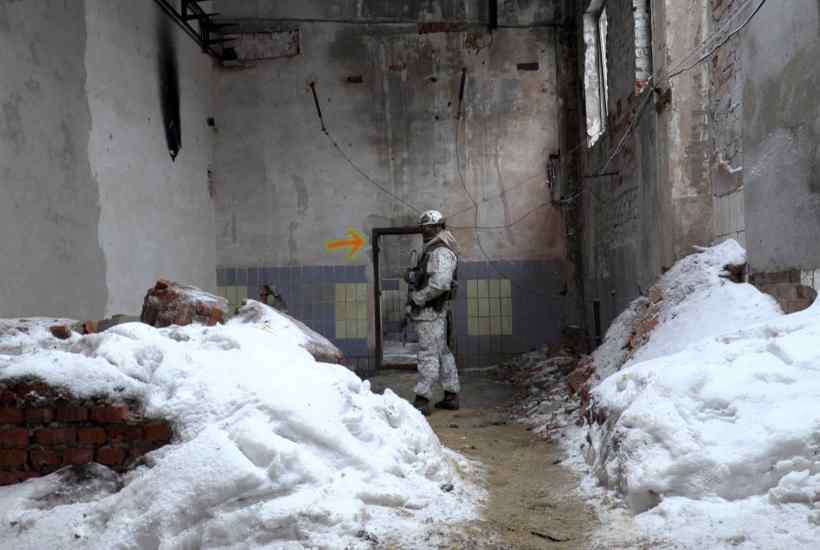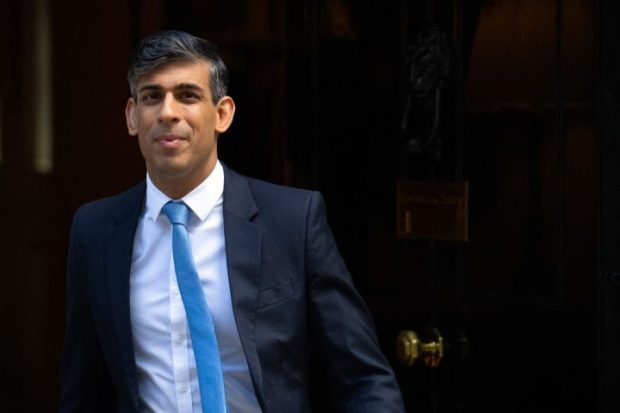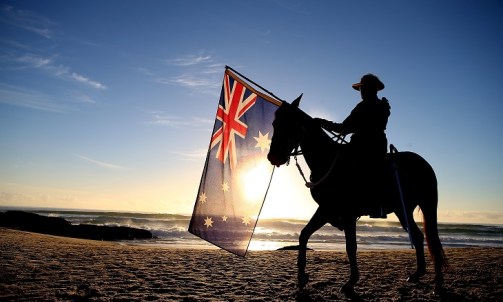Ukraine, as is periodically observed, means borderland. Geography will forever influence its destiny as an independent state. With tensions between East and West again rising, however, Kiev might well conclude that Ukraine is more accurately translated as ‘on the margins’.
Foreign leaders and ministers have, to be sure, been punctilious in making courtesy visits to President Zelensky and his team before or after paying court to President Putin in Moscow. But it must now be crystal clear to Kiev that — in a conflict essentially centred on Ukraine, though actually about much more — its western champions have at best considered Ukraine’s interests as secondary to the pursuit of the main quarrel with Russia, often not considering them at all.
How else to explain the flurry of developments over the past week? As Volodymyr Zelensky pressed on heroically with his message of keeping calm and carrying on, and most Ukrainians — quite astonishingly — did just that, the US and the UK together amplified their warnings of a Russian invasion. It is now not just ‘imminent”, apparently, but scheduled for as early as Wednesday.
Nor did they stop at upping the already heated rhetoric, which had been briefly paused at the end of January. They passed on to action — action that has a direct impact on Ukraine. Both countries extended their previously announced withdrawal of diplomats, adding calls for all US and UK nationals to leave Ukraine while there were still commercial routes out. ‘Remember Kabul airport?’ Asked the UK’s second-in-command at the Ministry of Defence, James Heappey, during an interview on the BBC Today programme. Well, he went on, the Taliban had had no airpower to speak of; imagine how it could be with missiles and the like. Oh, and by the way, he strongly inferred, the RAF won’t be risking their lives to get you out.
A dozen countries have now instructed or recommended their nationals to leave. The Netherlands, with memories of almost 200 Dutch deaths in the MH17 disaster, announced that KLM was stopping all flights to Ukraine. Others are expected to follow suit.
There are bleak, but confident predictions, that international insurance companies will cease cover for companies operating in Ukraine, as well as for visitors. That will effectively leave Ukraine not just physically cut off but branded an unsafe destination — a label that will be harder to lose than gain. A UK Foreign Office travel advisory has the effect of banning most travel, as it renders UK travel insurance policies invalid.
And the bad news kept coming. Having announced with great fanfare the dispatch of 2,000 shoulder-launched anti-tank missiles, and a 30-strong group of ‘elite troops’ to show them how to use them, the same minister who treated breakfasting Britons to a horrific vision of air strikes disclosed that all trainers were being withdrawn ‘over the weekend’. The United States is doing the same.
Of course, one interpretation might be that these military departures were envisaged as a tiny olive branch to Moscow, designed to reassure Russia that the West was not about to wage war over, or at least in, Ukraine. But the message this sends to Kiev is far clearer: Ukraine is on its own. It may be a ‘valued partner’ of Nato — as described by the Secretary General, Jens Stoltenberg, last month — but it is not a Nato member, and as such, does not benefit from the protection of Article 5.
The same message that Ukraine is now on its own was conveyed with the announcement of other US and UK withdrawals: this time from the OSCE monitoring mission in eastern Ukraine. Again, other countries are likely to follow, but not — it has to be hoped — all, as the OSCE, which monitors the fitful ceasefire, is the only international group that just about commands enough trust on all sides to be effective.
On 28 January, Zelensky gave a press conference in Kiev for the international press, which highlighted two main messages clearly intended for foreign governments. The first, since repeated several times, was that western alarmism risked having a counterproductive effect on Ukraine and that, if it wanted to help Ukraine, the US in particular should pipe down. The second was that the West’s dire warnings had killed foreign investment and Ukraine urgently needed economic help. For a president who had started with well-thought-out plans for the country’s development, and had had some success in drumming up interest, this turn of events is little short of catastrophic.
The risk now is that, in precipitating a showdown with Russia over the future of European security arrangements, the US and UK are inflicting near-fatal damage on the state they have treated as their protege since the Euromaidan uprising of 2014.
If you hold the view that a successful, prosperous and democratic Ukraine presents an existential threat to Putin’s Russia, then ruining that country, as the West currently risks doing, amounts to nothing more than doing Putin’s dirty work for him. Even if you don’t hold that view — I don’t, I believe a successful Ukraine is in Russia’s interests — an isolated, insecure and impoverished Ukraine stands to cost the West even more over the long term than it already has.
Many, if not all the gains of the past decade or so, in terms of democratic freedoms, economic growth and a healthy sense of national identity, risk being lost. But perhaps the greatest loss could be the political stability and cohesion that Zelensky’s landslide election victory promised. It should be noted that the huge demonstrations on the streets of Ukraine’s major cities this weekend, which received extensive coverage in the international media as expressions of national unity, were initiated by the nationalist right. This was not the platform on which Zelensky, who is of Jewish descent, campaigned; it is a spectre from Ukraine’s past that could yet be revived.
It is hard to believe that any of this is in the West’s interests. Some European countries and some individuals seem to realise this and are staying, demonstratively, in Ukraine. But many aren’t. Do western leaders really not see that, by their words and their actions, they are well on their way to sacrificing Ukraine, this time in the supposedly greater cause of opposing Russia?
Got something to add? Join the discussion and comment below.
Get 10 issues for just $10
Subscribe to The Spectator Australia today for the next 10 magazine issues, plus full online access, for just $10.


















Comments
Don't miss out
Join the conversation with other Spectator Australia readers. Subscribe to leave a comment.
SUBSCRIBEAlready a subscriber? Log in